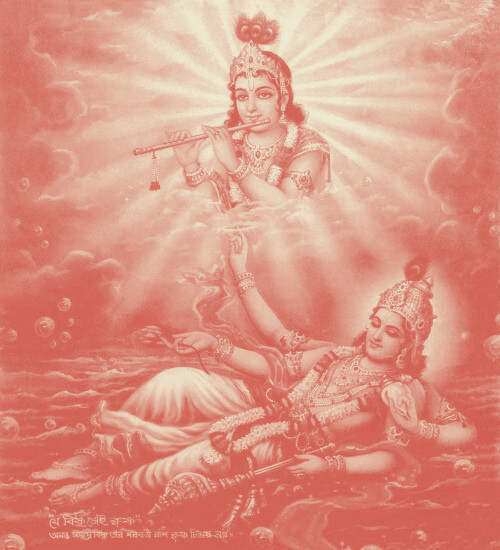Hinduism is one of the oldest, most diverse religions in the world, yet it’s commonly misunderstood and reduced to oversimplified (and plain inaccurate) stereotypes. Every Hindu can relate to being faced with rude comments about their religion — whether it’s in school, out in public, or even at the workplace — that have been passed around so often that they almost seem like facts. Let’s dive into these stereotypes and set the record straight: Hinduism is far richer and deeper than these myths suggest.
Misconception #1: There are millions of Gods in Hinduism
At first glance, it may seem like Hinduism is overflowing with gods — Ganesh, Vishnu, Parvati, Lakshmi… the list goes on. However, in Hinduism, there is truly only one ultimate God or reality, Brahman, which is formless and beyond human comprehension. All the other deities are only different manifestations of this one truth. This is similar to how the same individual may be a parent, teacher, or friend to different people, depending on their role in that person’s life.
Yet, Hinduism is commonly ridiculed for the aspect of having millions of Gods. But what’s so strange about viewing one divine in multiple forms? The idea that we pray to millions of different gods is baseless and simply untrue. Instead of being separate, independent gods, all the different deities are forms of the same supreme reality.
Misconception #2: Hindus worship cows and idols
This is one of the most common, classic stereotypes that people will resort to in insulting Hinduism. The idea that we pray to, or worship cows and idols.
Hindus respect and revere cows for their historical and spiritual significance, but they do not worship them. Cows symbolize motherhood and sustenance, which are values deeply respected in Hinduism; this is why Hindus refrain from cooking or eating beef. This doesn’t equate to cows being prayed to or worshipped. They are simply honored.
Similarly, idol worship (known as murti puja) continues to be a misunderstood practice today. The exact statute itself isn’t worshipped. Rather, it’s a representation of the divine, a physical representation of spiritual energy, much like how people use photos of loved ones for remembrance. Hindus aren’t worshipping the idol, but rather using a physical aid, a medium, to focus on their prayer.
Misconception #3: The Caste System still exists and is supported by Hindus
Hinduism is often associated with the caste system, with many believing that Hinduism follows the caste system. This is probably one of the most dangerous and harmful misconceptions about Hinduism today. The rigid caste system that existed was largely a social and historical construct, shaped by colonial policies of rulers and people with power, and was not directly related to Hinduism itself.
The “Varna” system in ancient Hindu texts was not based on one’s birth. It was based on profession and qualities, more related to a person’s character rather than their birth. This system, over time, was misinterpreted and misused, leading to discrimination.
Hinduism, especially in the modern age, does not stand for or support the Caste system. It isn’t religiously supported, in fact, many Hindu leaders reject caste discrimination. It is emphasized today that spiritual progress depends on one’s karma, not their birth.
Misconception #4: Hinduism is the name of one strict, organized religion
There are multiple aspects wrong about this statement. Let’s break it down:
To begin, “Hinduism” itself is a geographical term, referring to the people who live beyond the Indus River, not the name of the doctrine. The original and proper name for the religion is Sanatana Dharma.
However, Sanatana Dharma itself isn’t an organized religion. Hinduism isn’t a single doctrine, but an umbrella term that covers diverse philosophies, texts, and practices.
Hinduism doesn’t have one leader. It doesn’t have a date of origin. It doesn’t have one defining empire. There isn’t one scripture or one teaching that must be followed. Hinduism is very diverse, and has evolved over time to include various teachings and principles that each believer practices differently.
Misconception #5: All Hindus are vegetarian
“Ahimsa” is one of the major principles in Hinduism, meaning non-violence to any living thing. This is why many Hindus are vegetarian. However, it certainly isn’t required, and a majority of Hindus aren’t actually vegetarian.
Dietary habits in Hinduism vary by region and personal belief. For example, many Hindus in North India and Gujarat are strict vegetarians, while in coastal regions like Kerala and Bengal, you will find many Hindus eating fish or meat.
Many of the common misconceptions about Hinduism stem from misunderstandings, from historical misrepresentations rather than actual facts or religious teachings. These misconceptions are only distorted as they spread from person to person, leading to Hindus being faced with shameful and inaccurate comments about their beliefs.
In reality, Hinduism is deeply spiritual and inclusive, emphasizing unity and respect for all living beings. By challenging these stereotypes and misconceptions, we can foster a more accurate and respectful understanding of a religion that has shaped millions of lives for thousands of years.


Leave a Reply